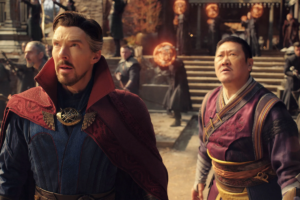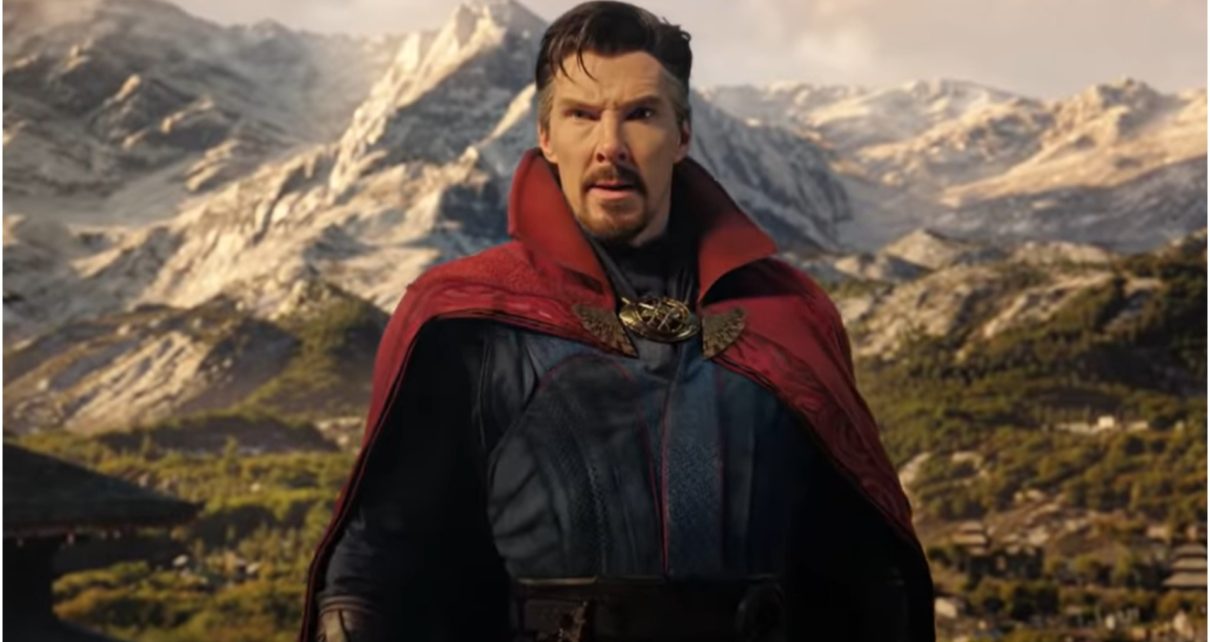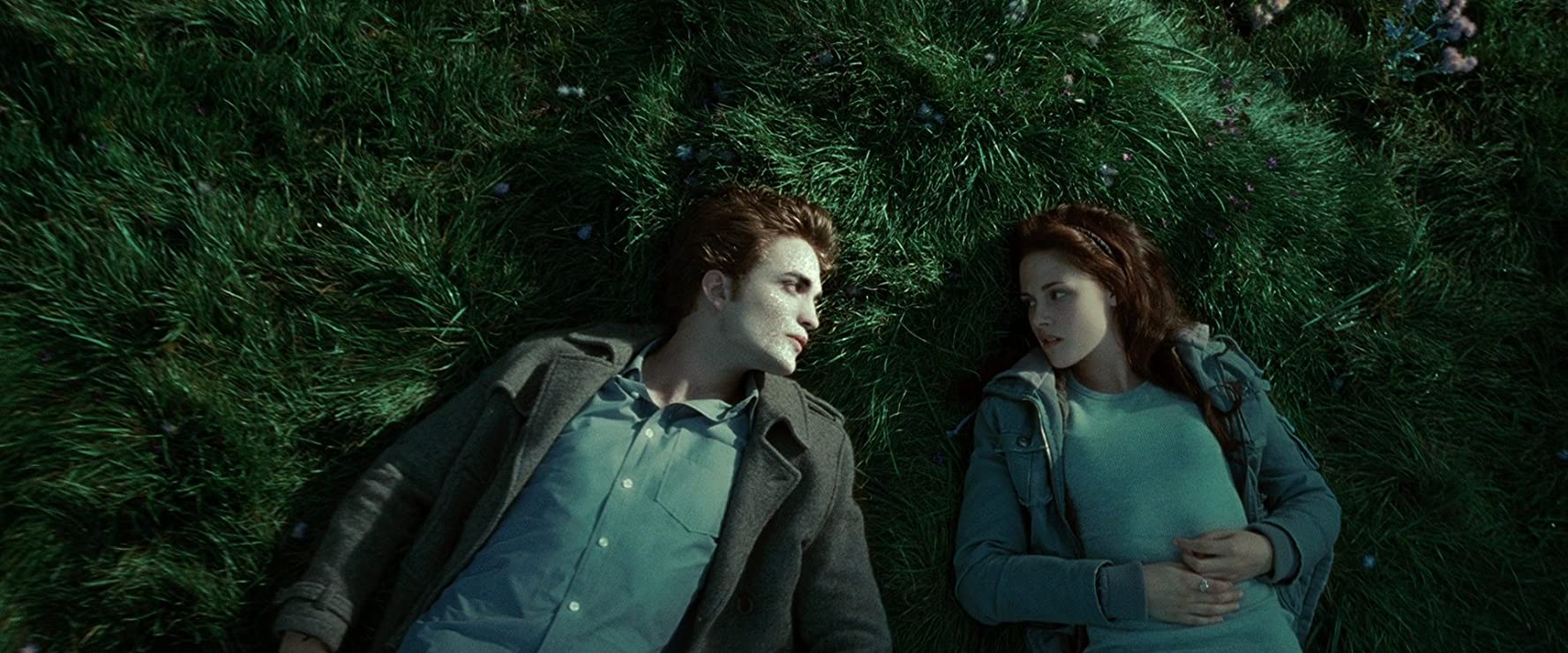Have you ever considered why superhero and dystopian films are so prevalent these days? Superheroism is a recognition of societal flaws. It seems not at all a coincidence that many of the classic DC heroes were either born from or came into public view in response to WWII – society had a big freaking problem and fictitious protagonists like Superman, Batman, and Wonder Woman empowered us.
So does the current orgy of superhero art reflect a similar Nazi-type threat to society? Maybe. Personally, I think our spate of superhero tales is a direct reflection of the rise of RW media – an entire ecosystem devoted to labeling villains, and thus opposing them. Without identification of villainy, RW media serves no purpose, and thus it invents villainy where none exists … but that’s tangential. Superheroism is a reflection on present-day issues. Dystopia is a reflection on as-yet-unheralded problems. Dystopian art is an angsty warning: “THIS IS WHAT YOU GET WHEN YOU DON’T PAY ATTENTION.” It differs from superhero art in that problems don’t exist entirely in the now … or they do, but we don’t yet see them as problems. It’s an artform that assumes precognition and –thus- a certain amount of arrogance (nobody truly knows the future, after all), thus it is brain candy for the modern pundits of doom so prevalent in our age.
The new form of dystopia, however, the multiverse, is something else entirely. It isn’t so much angst or warning as acceptance: we’re already doomed on THIS Earth; why don’t you go look at another Earth? Maybe there’s one in which we didn’t screw the pooch. There’s almost a passive feel to the multiverse; so many mutliverse adventures involve making sure other versions of Earth escape our fate. Again, it is easy to see where this comes from. Quite frankly, any society where you get to the “President Trump” level of civilization has already failed. There is zero question of that. President Trump doesn’t happen in a society that works. We’re already a dystopia, whether we acknowledge it or not. So … our art turns to the fantastical; the versions of ourselves that aren’t necessarily screwed. And this understanding of parallel lives is exactly what Marvel is all about right now.
The multiverse is no fan of Dr. Stephen Strange (Benedict Cumberbatch). Just last December, his spell-casting united three different Spider-Men but sent their respective universes into total chaos in the process. It isn’t enough for the warlock Avenger to screw with Earth; Strange ain’t happy unless he’s tinkered with four different realities by tea time. Remember the slogan “In the Army, we do more before 9AM than most people do all day?” Dr. Strange creates more 9 AMs before there’s even time for an army. Or something like that. In Doctor Strange, he messed with the chronocentric Infinity Stone, and he’s never since stopped playing God.
Yeah, I see your headache already. Lemme simplify: in the first Doctor Strange film, he messed with time; in this film, he’s messin’ with reality, and not just ours. Theoretically, this one wasn’t his fault. Kinda.
It all starts with a bad dream. Pursued by a powerful destroyer of worlds, Dr. Strange and his new companion, America Chavez (Xochitl Gomez), are trying to save themselves, when Strange gives up. America has the unique and wonderful ability to universe hop; but she can’t control it, so when she and Strange are cornered, Strange opts for sucking the power out of her (thus sacrificing America – don’t read too much into that) to save Earth – it’s both noble and a dick move at the same time, which is kinda the best approximation of who Doctor Strange really is.
Doctor Strange wakes up in cold sweat only to realize hours later when a big alien octopus attacks NYC that he wasn’t dreaming; it was all real, just in a different world. Ah. Well. Of course it was. Given the magic at play, Doctor Strange decides to consult the Avenger witch, Wanda Maximoff (Elizabeth Olsen), only to discover she’s behind it! WTF?!
Basically, Wanda wants children and she seems to have some universe-destroying aversion to adoption or in vitro  fertilization. She has discovered in the multiverse a world in which she is mother to two young scamps and has taken to the dark arts to make that her reality … but naturally, she needs suck dry the dimension-hopping kid to make that her reality. And I can’t stress this part enough – she’s willing to destroy many, many lives to live out her momhood fantasy.
fertilization. She has discovered in the multiverse a world in which she is mother to two young scamps and has taken to the dark arts to make that her reality … but naturally, she needs suck dry the dimension-hopping kid to make that her reality. And I can’t stress this part enough – she’s willing to destroy many, many lives to live out her momhood fantasy.
Several Avengers movies ago, I openly wondered where the gang could go now that they already defeated the greatest threat to the universe (Thanos). And this is the answer: a micro with macro repercussions. The plot here is a relatively and ridiculously small problem in comparison, yet with enormous consequences. Interesting. And the worst part being: How can we condemn Wanda Maximoff, huh? You gonna tell the woman she doesn’t need to be a mother? She doesn’t have the right to be a mother? I’m not going there.
Doctor Strange in the Multiverse of Madness has, thus, a lot of dimension-hopping. I found it in equal parts exhilarating, thrilling, and downright confusing. Several times in Act III, I found myself saying, “OK, I understand what’s happening, and I understand the outcome we’re rooting for, but which world did she come from again? And whenever this ends, where does that person belong and how do they get back there?” This film is a classic example of “just roll with it; the film knows what it’s doing.” I don’t think you especially have to either like Dr. Strange or dislike Wanda Maximoff to enjoy this film; in fact, I think it helps your enjoyment if you understand their respective flaws while understanding that the desire for motherhood isn’t generally considered a “flaw,” knowwhatI’msayin’? I wouldn’t call this Marvel film genius … but on the enjoyment scale, it’s much more Spider-Man: No Way Home or Shang–Chi and the Legend of the Ten Rings than Morbius or Eternals.
Our Doctor Strange has such massive clout
He hops realities flitting in and about
Sure, in modern halls
They don’t make housecalls
But this gives new meaning to “the doctor is out”
Rated PG-13, 126 Minutes
Director: Sam Raimi
Writer: Michael Waldron
Genre: Cosplay
Type of being most likely to enjoy this film: If you’ve already seen twenty Marvel films, you pretty much have to see this one, too
Type of being least likely to enjoy this film: “What’s a multiverse?”



